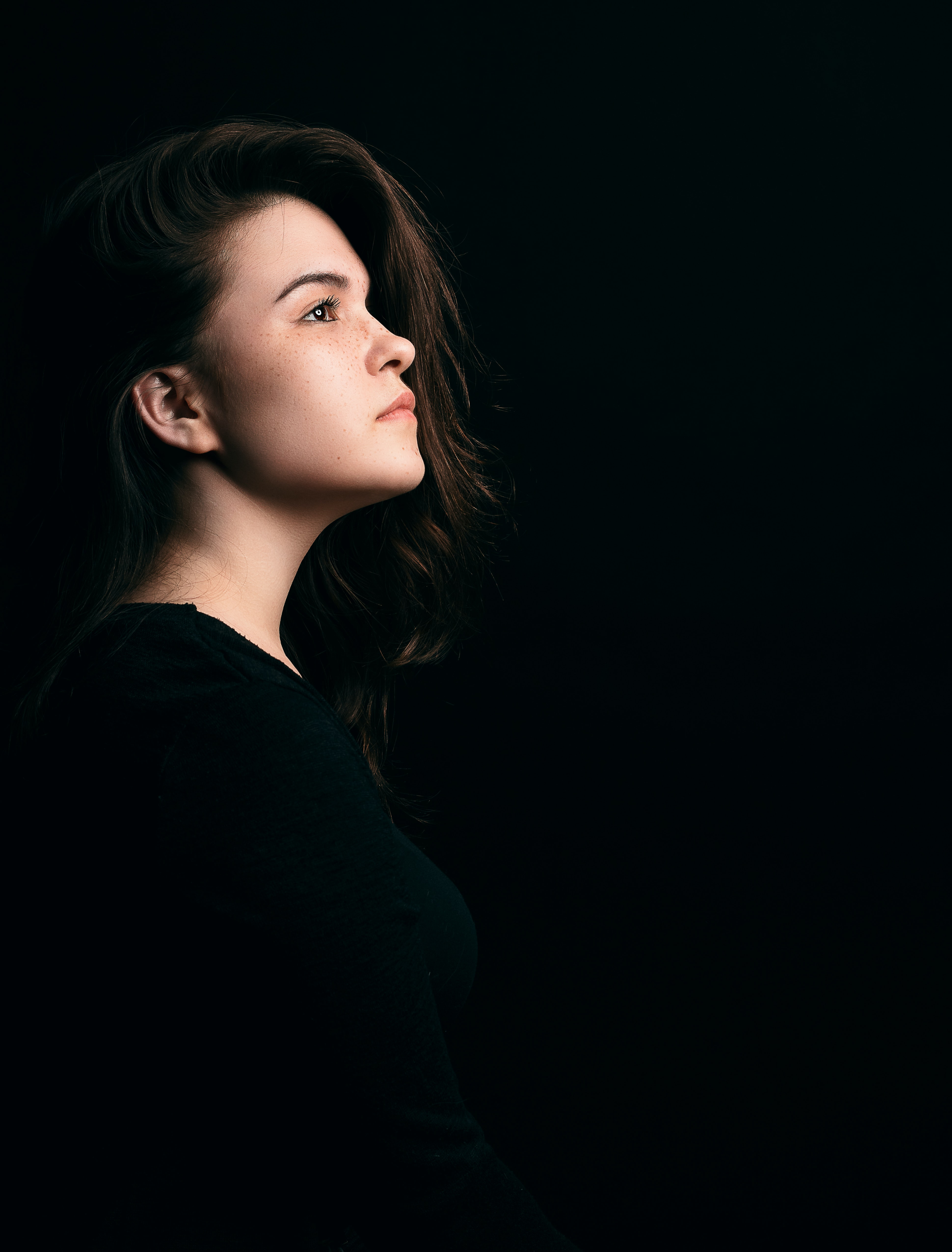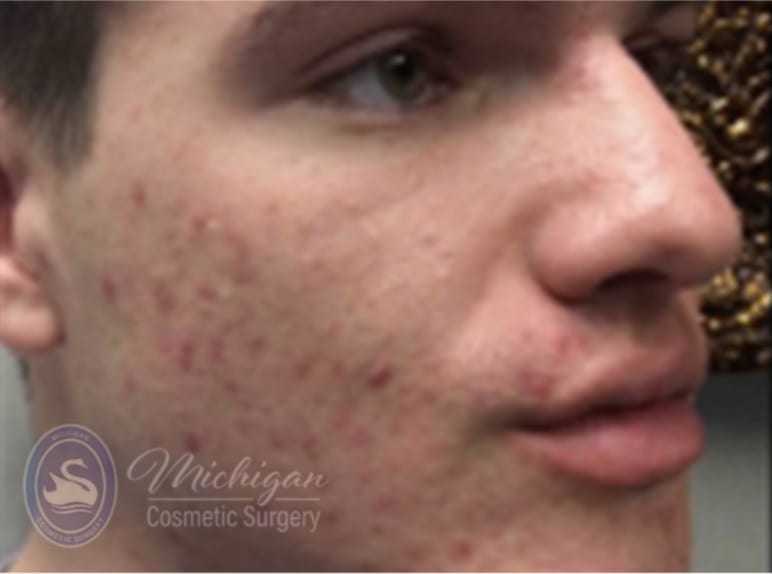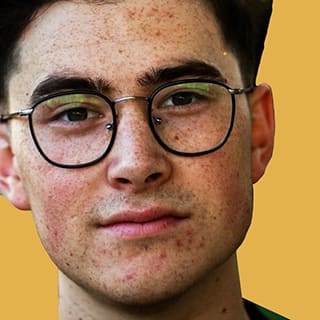
The Skinny
Living with acne can be painful, embarrassing, and even debilitating, with detrimental effects on a person’s confidence and self-esteem. As one of the most common skin issues among people of all ages, it’s easy to lose hope over something that affects you every day of your life, and the idea of someday having clear, blemish-free skin can seem too good to be true—like some sort of a Quixotic dream.
Luckily, various methods work extremely well in the fight against acne breakouts, that can safely and effectively fade, reduce, and eliminate light, moderate, and extreme cases of pimples. Getting great skin is entirely possible for many people and can be a saving grace for those feeling helpless and hopeless about the condition of their skin.
It’s important to note that successfully getting rid of acne takes time, patience and dedication. Especially for those with moderate to severe cases of acne, lesions won’t disappear overnight. Rather, treating acne will take at least a few weeks, if not months, of daily care and consistency to begin seeing potentially life-changing results.
In all, acne treatments are simple, effective, and well worth the wait. If you start now, you’re likely to have flawless skin in just a few months, leaving your acne-induced fears, worries, and insecurities behind you.
AEDIT
Before & After Images by Provider












Before & After Images by Provider
Acne Treatment Solutions
The Specifics
Do Acne Treatments Work?
When dealing with acne, you may be tempted to try anything you can get your hands on to help clear up your face. The problem is, not all acne treatments are created equal. Depending on your skin’s sensitivity, the type of acne you have, and other factors, one treatment that worked for someone you know may not work for you—even if you seem to be struggling with the same skin issues.
For severe acne cases, like nodular or cystic acne, a stronger treatment may be suggested by your doctor. This will likely be in the form of Accutane®, which is often used as a last-resort treatment for severe, cystic acne, and spironolactone, prescribed to women for bad cases of acne vulgaris caused by hormonal changes. Benzoyl peroxide is another treatment popular for mild to moderate acne breakouts, which can be prescribed by your doctor and bought over-the-counter without a prescription.
All three of these treatments have been proven to clear skin but are used for different skin types and acne levels. These include both oral medication and physical gels, lotions, or foams, and sometimes a combination of these, according to your doctor’s recommendations.
Who is a Good Candidate For Acne Treatments?
Accutane®, spironolactone, and benzoyl peroxide are some of the most common treatments recommended by doctors today. Each of these medications works well under certain conditions, and a board-certified dermatologist will be able to prescribe the one that will work the best for you.
As previously suggested, meeting with your doctor or dermatologist for a diagnosis and treatment plan is essential to getting the most successful results. Taking the wrong type of medication for your acne treatment can cause serious side effects, or at the very least, be a waste of time, money, and hope.
In any case, each of these medications is meant for a specific type of acne sufferer. Here are descriptions of the best candidates for each medication, to give you an idea of what treatment you can expect to be prescribed:
Accutane® (Isotretinoin): If you are suffering from severe cystic acne that has not been responsive to other treatment options, Accutane® will be your best option. This is one of the stronger treatments with more dangerous side effects to consider, and should only be used for the worst cases of cystic acne.
Spironolactone: The best candidates for this medication are women suffering from acne vulgaris caused by hormonal acne. Acne vulgaris is defined as inflammatory papules that are deep-seated and tender, primarily located on the lower half of the face.
Benzoyl Peroxide: For those with mild to moderate acne breakouts, Benzoyl peroxide can be applied directly to the skin. Over-the-counter products can help to reduce acne-causing bacteria build-up by drying out the skin and allowing it to peel.
How Are Acne Treatments Prescribed?
Depending on the strength level of your acne treatment, a prescription may be required. Treatments on the stronger side will require a doctor or dermatologist to fill a prescription. Most benzoyl peroxide treatments in the form of creams or foams can be bought over-the-counter at any local drug store, while stronger oral treatments such as Accutane® and Spironolactone that have a higher risk of side effects must be prescribed by a doctor or dermatologist.
During your consultation with a dermatologist, your skin will be examined, and you will be asked a series of questions about your lifestyle and history of acne breakouts. Your doctor will determine what kind of acne you have, and what the best form of treatment will be to safely and successfully treat it.
If your acne is mild or moderate, your doctor may suggest over-the-counter benzoyl peroxide treatments, with brand names like Clearasil, Mary Kay, Neutrogena, and Paula’s Choice. Although these are familiar brands that can be acquired without a prescription, it’s still a good idea to have them prescribed by your doctor, who will give you detailed directions on which benzoyl peroxide products to use, and how.
What are the Goals and Benefits of Acne Treatments?
The goal of any acne treatment is to reduce the appearance and occurrence of your acne. By reducing your acne, you get a clearer face, avoid acne scarring, eliminate painful lesions, and can also improve your health.
Clearing up your acne is one feat, but preventing it from returning throughout one's lifetime is the ultimate goal. Similarly, another primary goal for those suffering from acne is the improvement of one’s emotional health. Severe acne can cause emotional distress, anxiety, and other issues, and improving your self-esteem and confidence should be on your list of goals to look forward to after treatment.
Who Should Not Have Acne Treatments?
Unfortunately, acne treatments—like any medication—are not for everyone. Just as there are good candidates for acne medications, there are also those whose medical backgrounds and physical conditions will exclude them from being recommended for treatment.
Those unable to follow through with a full treatment calendar of daily medications are not likely to have success in treating their acne. Therefore, if you cannot dedicate yourself to completing the schedule (this could be anywhere from a few weeks to six months), you are not a good candidate for any sort of acne treatment.
Beyond this, the traits of those unsuitable for acne treatments vary according to the medication, and are generally as follows:
Accutane®: Women who are trying to become pregnant, are pregnant, or those breastfeeding should not take Accutane®. Isotretinoin, if taken when pregnant, can cause birth defects including deformities of the heart, face, and brain.
Spironolactone: Designed as a treatment for women, spironolactone is not recommended for men. This medication has anti-androgen properties and can have unpleasant side effects for male patients, like gynecomastia ( breast tissue growth), erectile dysfunction, and weakened levels of testosterone. Spironolactone is also not recommended for women who are trying to become pregnant, are pregnant, or those breastfeeding.
Benzoyl Peroxide: One of the mildest treatments, benzoyl peroxide can be used by most people. Those who have active rashes or skin sloughing should use precaution when using products in irritated areas.
How Will I Prepare for my Acne Treatment?
These three treatments will not require much preparation before beginning treatment. For Accutane® and spironolactone, you may be required to take the oral medication along with food or liquids for proper absorption.
Female patients with chances of becoming pregnant should start birth control before starting a course of Accutane®. For those beginning a skin care routine with benzoyl peroxide products, you will simply want to avoid applying to areas with rashes or open cuts to prevent skin irritation.
Are There Any Side Effects or Complications From Acne Treatments?
Side effects can be a big deterrent for some but having clearer skin may be worth the risk for those suffering from emotional distress caused by their acne. We will review the side effects of each medication, so you are aware of any complications that may occur while performing each treatment.
Accutane® (Isotretinoin): Accutane® is one of the strongest medications used for treating acne, and it also has the most side effects that go along with it. Some side effects and complications for Accutane® users include dry lips, dry mouth, swelling, crusted, peeling skin, nosebleeds, upset stomach, hair thinning, Crohn’s Disease, abnormal bone growth, dry eye syndrome, arthralgia, xeroderma, and exacerbation of eczema.
Spironolactone: Spironolactone patients can experience menstrual irregularities, breast tenderness, headaches, and fatigue.
Benzoyl Peroxide: Benzoyl peroxide products can cause mild stinging or burning, itching, or tingling sensations, skin dryness, peeling, flaking, and redness.
If you experience side effects that are not on this list, stop your dosage and consult with your doctor or dermatologist immediately. Your medical professional may want to consider switching to a different medication or treatment that will better suit your needs with a more comfortable process.
How Much Do Acne Treatments Cost?
The cost of acne treatments is usually dependent on the type of treatment being given, and stronger medications are usually more expensive. For the price you are paying, the results of potentially lifelong acne reduction greatly outweigh the costs. Follow along as we break down the average minimum and maximum cost of each treatment.
Accutane®, as the strongest medication of the three, and also the most expensive. Out-of-pocket treatments for Accutane® can cost up to $500 a month for a treatment plan lasting four to six months—though insurance will likely cover most if not all of the cost. Spironolactone is significantly less expensive, with an average cost between $1 to $30 per month, for an average of six to eight weeks. Spironolactone is also usually covered by most insurance plans.
Benzoyl peroxide products can be purchased online, in drugstores, and pharmacies without a prescription, ranging between $10 and $30 per product. Products vary in form from facial cleansers and masks to soaps and lotions, and many will also have salicylic acid and vitamin A included in the list of ingredients.
Are Results Permanent or Temporary?
One of the most frequently asked questions when dealing with skin care treatments is whether or not the treatment is permanent or temporary. Just like previous topics we have discussed in this article, results will vary depending on your specific treatment and acne. However, most see great success with these treatments.
Accutane® (Isotretinoin): In most cases, Accutane® treatment results in the prolonged clearance of acne, even permanent in some cases. Although some acne may return, it is usually not as severe as before Accutane treatment. A small percentage of patients may need a second course of Accutane®, and some patients may not respond at all.
Spironolactone: Similar to Accutane®, treatments of Spironolactone often clears acne for a very long time—if not permanently. Also like Accutane®, it is possible for some acne to return, however, the breakout will not be as severe as it was before treatment with spironolactone.
Benzoyl Peroxide: Benzoyl peroxide results are seen usually after three weeks of use, while maximum benefits will occur around 12 weeks. Increasing your dosage or using peroxide more than advised will not improve acne any faster and the risk of side effects will increase.
How Will I Take Acne Treatment Medicine?
These three acne treatments have specific directions on how to consume or apply the medication. Knowing how to properly take your medication is key when dealing with acne. As mentioned before, dedicating yourself to a consistent and complete skin care routine as prescribed by your doctor will determine the success of your treatment.
What your skin care routine will consist of will depend on the treatment you were prescribed. Your doctor will be able to explain in full detail what a proper regimen will look like, and how long it will take to complete the treatment. In general, here is a skincare routine is like for Accutane®, spironolactone, and benzoyl peroxide treatments.
Accutane® (Isotretinoin): Accutane® must be taken with a full glass of water. This prevents the capsule from melting in your esophagus which could irritate. You will want to swallow the pill swiftly and refrain from chewing or sucking on the capsule. It is highly important to take this medication for the entire duration of the prescription as your acne may get slightly worse before it gets better. It is recommended to have your blood and liver function tested often to ensure the medication is not causing any side effects.
Spironolactone: Originally designed as a diuretic and used to treat fluid retention, Spironolactone has been proven to help treat hormonal acne. Take your prescribed amount after a meal, once daily, or as prescribed by your doctor, and that you take this medication for the entire duration of the prescription.
Benzoyl Peroxide: Benzoyl peroxide comes in easy to apply foams, soaps, and creams that can be applied to the acne affected areas. This treatment is often combined with other types of acne treatments, which will also form a part of your daily routine. In most cases, benzoyl peroxide products like face washes must be used once or twice a day, in the morning and at night. Peroxide can bleach clothes and hair, so be sure to avoid contact with anything that may become bleached.
How Long Does It Take To See Results?
While no miracle drug will make your acne disappear overnight, with perseverance, these treatments can reduce your severe acne in as little as three weeks. Depending on your treatment and acne level, your results may vary. The most important part of your treatment is to make sure to take your medication for the full duration of the prescription.
Accutane® (Isotretinoin): When taken daily, you can typically see a reduction in your severe acne from Accutane treatments in about four to six months. While this may seem like a long time, the result can be worth it.
Spironolactone: For women taking Spironolactone, you can expect to see results in about 4-8 weeks when treating daily.
Benzoyl Peroxide: Applying benzoyl peroxide to your acne problem areas daily can result in clearer skin in as little as three to twelve weeks. Do not apply more than directed, as your risk for side effects will increase—with no change in effectiveness.
The Takeaway
Conclusion: The Pros and Cons of Acne Treatments
As with any medication, there are pros and cons to using acne treatments like Accutane, spironolactone, and benzoyl peroxide. Patients will be able to discuss the positives and negatives of each treatment with their doctor, to ultimately decide whether the possibility of clear skin is worth the investment of time and energy.
For Accutane® users, the pros of using this treatment are its high effectiveness, while the cons of the treatment are a long list of side effects and extreme dryness of the skin. That said, there is currently no other medication that’s better for treating severe cases of cystic acne, and it’s often a risk worth taking for those suffering from debilitating breakouts.
Spironolactone can also be a wonderful treatment for women suffering from hormonal breakouts of acne vulgaris. Because the drug was primarily intended for use as a low-potassium diuretic, there are several side benefits for taking the drug that goes beyond the skin, including lowering high blood pressure and combating female pattern hair loss. The cons of this treatment include menstrual cycle irregularities, fatigue, and breast tenderness, though these symptoms are often mild and unnoticeable for many people.
Benzoyl peroxide has many pros—it’s easily available, fast-acting, and has anti-inflammatory properties to help soothe and improve skin. Cons include skin dryness, potential risk of hyperpigmentation, and a higher risk of skin damage with prolonged exposure to the sun.
One of the best features of these treatments is that there is no recovery needed. Unlike surgical procedures, you can continue with your daily life while using these treatments. This makes these treatments very attractive to those with busy lifestyles.
Taking the time to research each treatment within this article can give you the information you need for properly treating all types of acne. If you are considering taking one of these treatments to treat your cystic or mild to moderate case of acne, always consult with your doctor, or find a reputable, board-certified dermatologist to determine what the best medication for your acne case will be.


